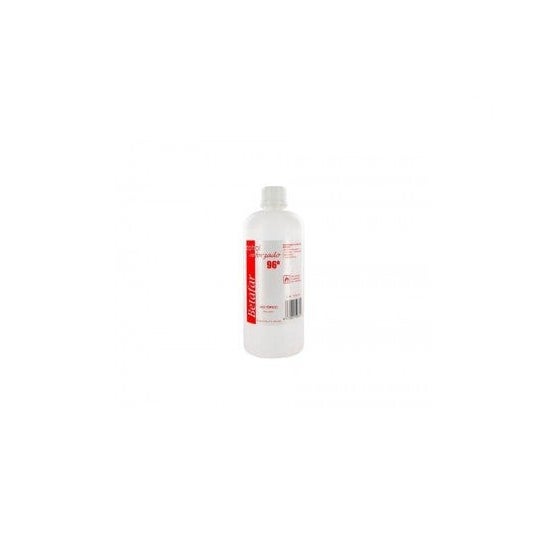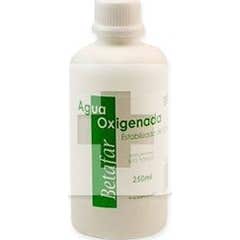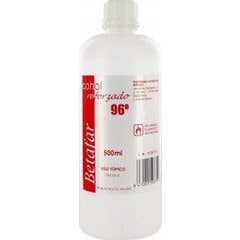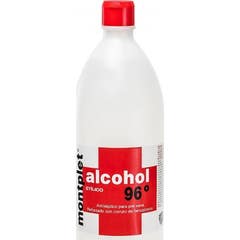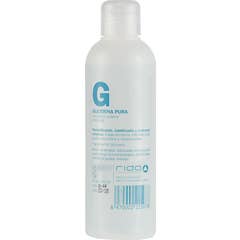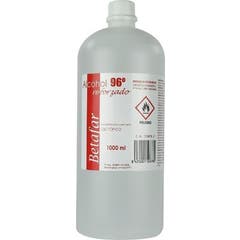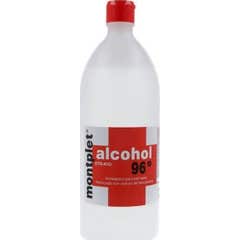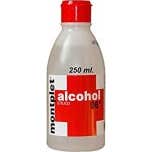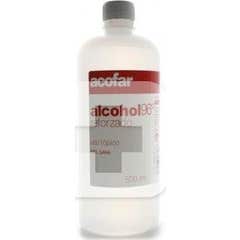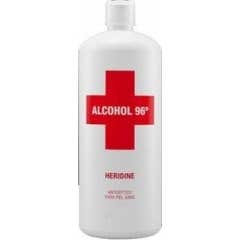Rubbing alcohol for sanitary use is an antiseptic for healthy skin. It is an effective substance to eliminate viruses and bacteria on the skin surface when used properly. However, it is less effective against bacterial spores, which are more resistant. Alcohol is used to prepare the skin before an injection or minor surgery. It should not be used to disinfect open wounds (other disinfectants are better served for this purpose), nor on damaged or irritated skin. It should not be applied to eyes, mucous membranes or very large skin areas. It should always be used externally. It may contain other disinfectant substances to boost its action.
We commonly find 96° or 70° alcohol in medicine cabinets. But how are they different? The difference lies in the degree of ethanol concentration that they contain. The 96° alcohol is higher in concentration. On the other hand, 70° alcohol is more diluted, i.e. it has a 30% water content. Both act as disinfectants, the former with faster action and the latter, although slower, more effective, as it can better penetrate the bacterial protoplasm. 70° alcohol is considered to have a greater antiseptic effect.
On the other hand, there are popular hydroalcoholic solutions in a gel format, for hand disinfection when soap and water are not available. They are usually less irritating than the direct application of alcohol, as they contain other moisturising and soothing ingredients. Hydroalcoholic gels with an alcohol concentration of around 70% are considered the most suitable for antiviral purposes. It is important to remember that all alcohol products are highly flammable and should be handled with caution.
Finally, ethyl alcohol or ethanol also has applications in personal care products. In cosmetics, it can be used as a preservative, dissolve other ingredients or for its astringent action, but in these formulations, it is found in much smaller quantities.
It should not be mixed with other substances and should be kept out of children’s week. In case of poisoning or accidental ingestion, seek medical advice immediately.

